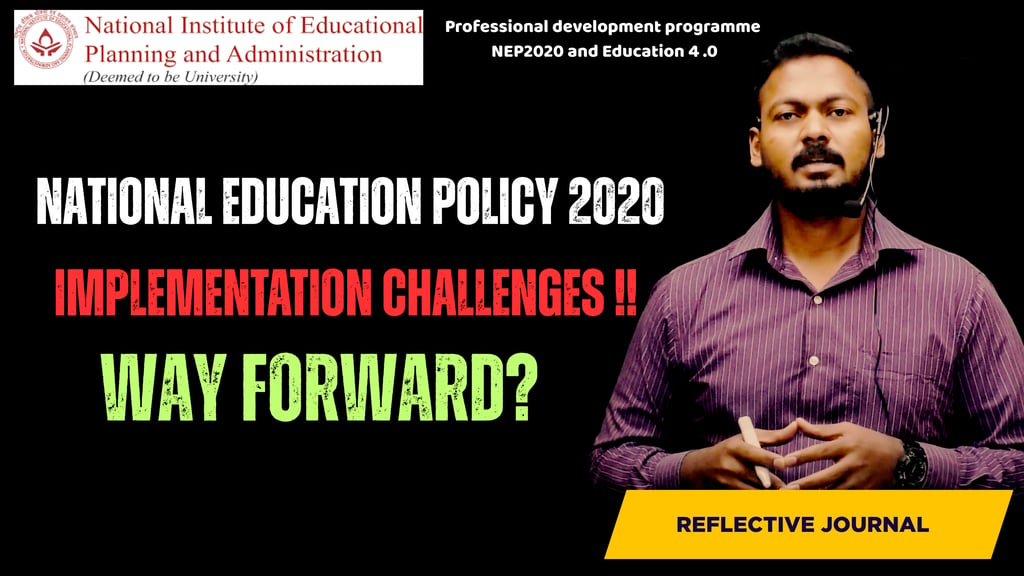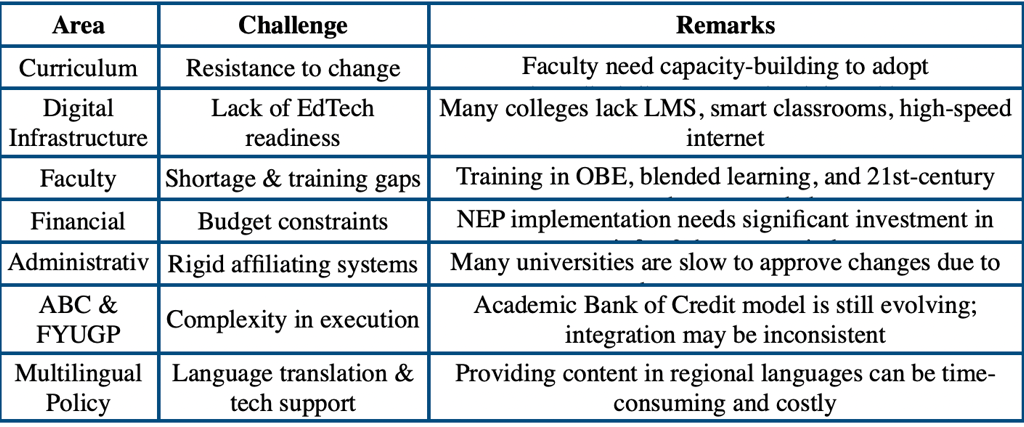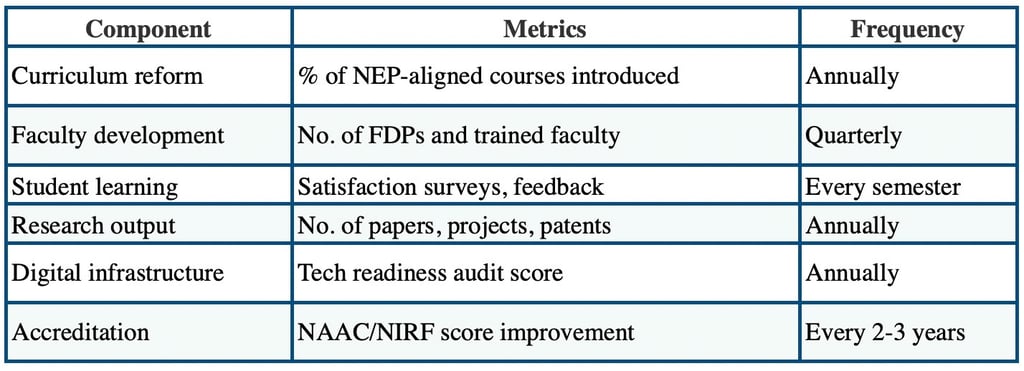NEP 2020 Implementation Roadmap for your Institution : Insights from NIEPA
To transform your institution into a multidisciplinary, inclusive, learner-centric institution aligned with the goals of the National Education Policy (NEP) 2020, fostering critical thinking, skill development, innovation, and holistic growth.
Indra Kumar
7/14/20252 min read


The National Education Policy (NEP) 2020 envisions a holistic, multidisciplinary, and flexible education system aligned with the needs of 21st-century India. In line with this, your institution should be committed to transforming itself into a future-ready institution. The roadmap for implementation will be executed in four structured phases from 2025 to 2030, focusing on foundational readiness, curriculum transformation, research and innovation, and inclusive governance.
Phase 1 (2025–2026) will lay the groundwork through awareness-building and institutional preparedness. A dedicated NEP Implementation Task Force will be constituted, comprising the Principal, Heads of Departments, senior faculty, and student representatives. Awareness programs and faculty development workshops will be conducted to sensitize all stakeholders to the key changes proposed in NEP 2020. Special attention will be given to training faculty in the use of digital tools, blended learning models, and multidisciplinary teaching approaches. A comprehensive audit of the existing curriculum will be undertaken to identify gaps and areas for NEP alignment.
Phase 2 (2026–2027) will focus on curriculum reform and pedagogical transformation. The college will introduce the Four-Year Undergraduate Programme (FYUGP) with multiple entry and exit options, as well as integrate the Academic Bank of Credits (ABC) in line with UGC and NAD-Digilocker frameworks. The revised curriculum will embed skill-based learning, critical thinking, ethics, and Indian Knowledge Systems (IKS), making education more holistic and relevant. New interdisciplinary courses and minors will be offered to provide students with flexibility and breadth in learning. These efforts aim to break departmental silos and foster a truly liberal and future-oriented academic structure.
Phase 3 (2027–2028) will aim to deepen multidisciplinary learning and create a research-oriented culture. A Student Research and Innovation Cell shall be established to promote problem-solving, scientific inquiry, and social entrepreneurship. Faculty will be encouraged to collaborate across disciplines and undertake joint research. A structured Student Research Internship Programme (SRIP) will be introduced to connect learning with community needs and real-world applications. The college will also initiate an annual Research Symposium to showcase innovative student and faculty work and strengthen industry-academia linkages.
Phase 4 (2028–2030) will focus on institutional governance, inclusivity, and global outreach. The college will move towards graded autonomy and adopt Outcome-Based Education (OBE) frameworks for quality assurance and better learning outcomes. Inclusion will be a core pillar, with the formation of support centres for women, economically disadvantaged students, and persons with disabilities (Divyangjan). Financial aid mechanisms will be streamlined to support students from diverse backgrounds. On the global front, the college will explore international collaborations, student/faculty exchanges, and credit transfer agreements with reputed universities to promote internationalization and global competency.
Implementation Challenges




By 2030, the college aims to achieve autonomous status, improve its NAAC/NIRF rankings, and position itself as a model Multidisciplinary Education and Research Institution (MERU) as envisioned in NEP 2020. This transformation will not only benefit students and faculty but also align the institution with India's vision of becoming a global knowledge hub.